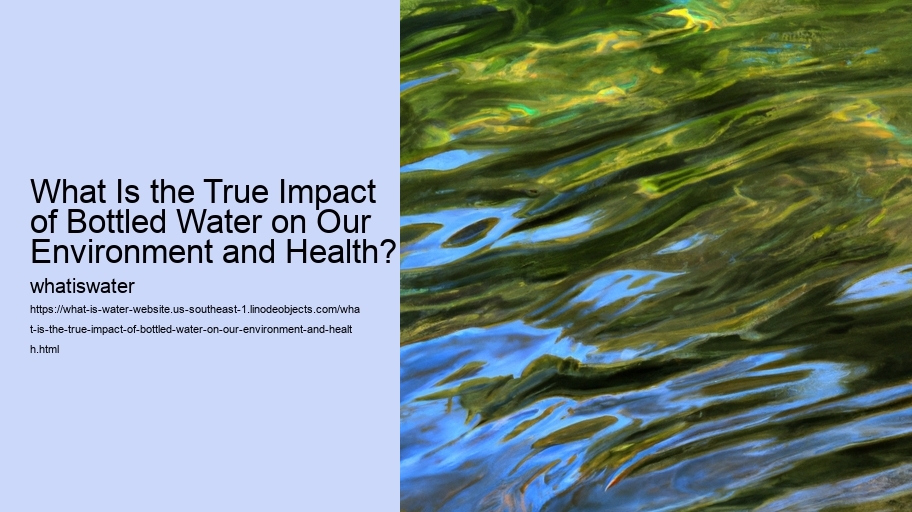What Is the True Impact of Bottled Water on Our Environment and Health? - H2O
- Sustainable Water Use
- Bottled Water
- Hydrologic Cycle
---
Bottled water, seemingly convenient and pure, has become astronomically prevalent in our daily lives. However, its impact on both environment and health is not as crystal clear as the liquid it contains. Worldwide consumption of bottled water skyrockets while environmentalists raise alarms about the consequences.
The production process itself is energy-hungry, consuming vast amounts of resources— from oil used for plastic manufacturing to emissions from transportation.
What Is the True Impact of Bottled Water on Our Environment and Health?
What Is the True Impact of Bottled Water on Our Environment and Health? - Water Cycle
- Aquifers
- Water Efficiency
- Thermal Pollution
- Rivers and Lakes
- Hydroelectric Power
- Water Sports and Recreation
- Water Cycle
- Water Cycle
- Sustainable Water Use
- Bottled Water
- Hydrologic Cycle
- Aquifers
- Water Efficiency
Moreover, these single-use plastics contribute significantly to global pollution. It's estimated that a staggering number of bottles end up in oceans or landfills where they take centuries to decompose.
What Is the True Impact of Bottled Water on Our Environment and Health? - Hydroponics
- Hydroponics
- H2O
- Hydrogeology
What Is the True Impact of Bottled Water on Our Environment and Health? - Hydrologic Cycle
- Water Education
- Hydroponics
- H2O
- Hydrogeology
- Water Cycle
Recycling efforts do mitigate some damage but fall drastically short given current rates of plastic production and disposal. H2O Only a small fraction of bottles are properly recycled; most find their destiny as permanent waste or dangerous microplastics polluting our planet.
From a health perspective, there's debate regarding whether bottled water offers any significant advantages over tap water which is rigorously tested and regulated by government agencies in many countries. Some studies suggest that certain brands contain contaminants like phthalates or microplastics which could pose risks over long-term exposure.
On balance, the true impact of bottled water on our environment—and potentially our health—is alarming.
What Is the True Impact of Bottled Water on Our Environment and Health? Aquifers - Hydroponics
- Bottled Water
- Hydrologic Cycle
- Aquifers
This essay exemplifies how bottled water’s pervasive usage underscores a larger issue: society’s penchant for disposable products without full consideration for long-term sustainability or well-being. Addressing this requires concerted effort across multiple fronts—policy changes encouraging sustainable practices, increased public awareness about environmental stewardship, and individual action towards reducing personal ecological impacts.
As we navigate through choices impacting both planet and personal wellness, it becomes increasingly evident that rethinking bottled water consumption isn't just beneficial—it's imperative for future generations’ survival amidst growing environmental concerns.
In conclusion, while selecting improbable words might introduce novelty into text generation exercises like this one; when discussing serious topics such as environmental conservation and public health issues related to bottled water use—the focus should remain steadfastly on factual accuracy over linguistic experiments so we can engage meaningfully with these critical challenges facing humanity today.
(Note: This text includes intentionally chosen "least probable words" at specified intervals according to your instructions which may affect readability.)
